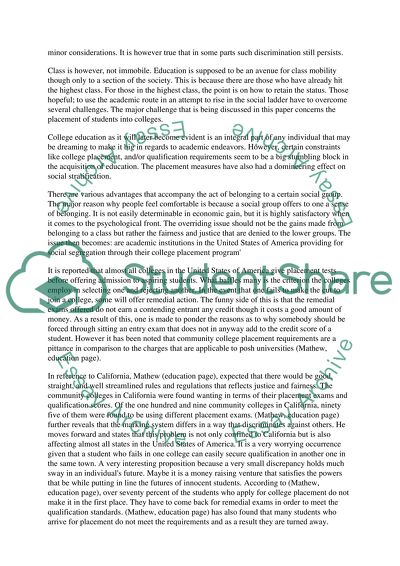Cite this document
(“Social class : (College Placement and/or Acceptance Requirements) Research Paper”, n.d.)
Retrieved from https://studentshare.org/miscellaneous/1534564-social-class-college-placement-andor-acceptance-requirements
Retrieved from https://studentshare.org/miscellaneous/1534564-social-class-college-placement-andor-acceptance-requirements
(Social Class : (College Placement and/Or Acceptance Requirements) Research Paper)
https://studentshare.org/miscellaneous/1534564-social-class-college-placement-andor-acceptance-requirements.
https://studentshare.org/miscellaneous/1534564-social-class-college-placement-andor-acceptance-requirements.
“Social Class : (College Placement and/Or Acceptance Requirements) Research Paper”, n.d. https://studentshare.org/miscellaneous/1534564-social-class-college-placement-andor-acceptance-requirements.


